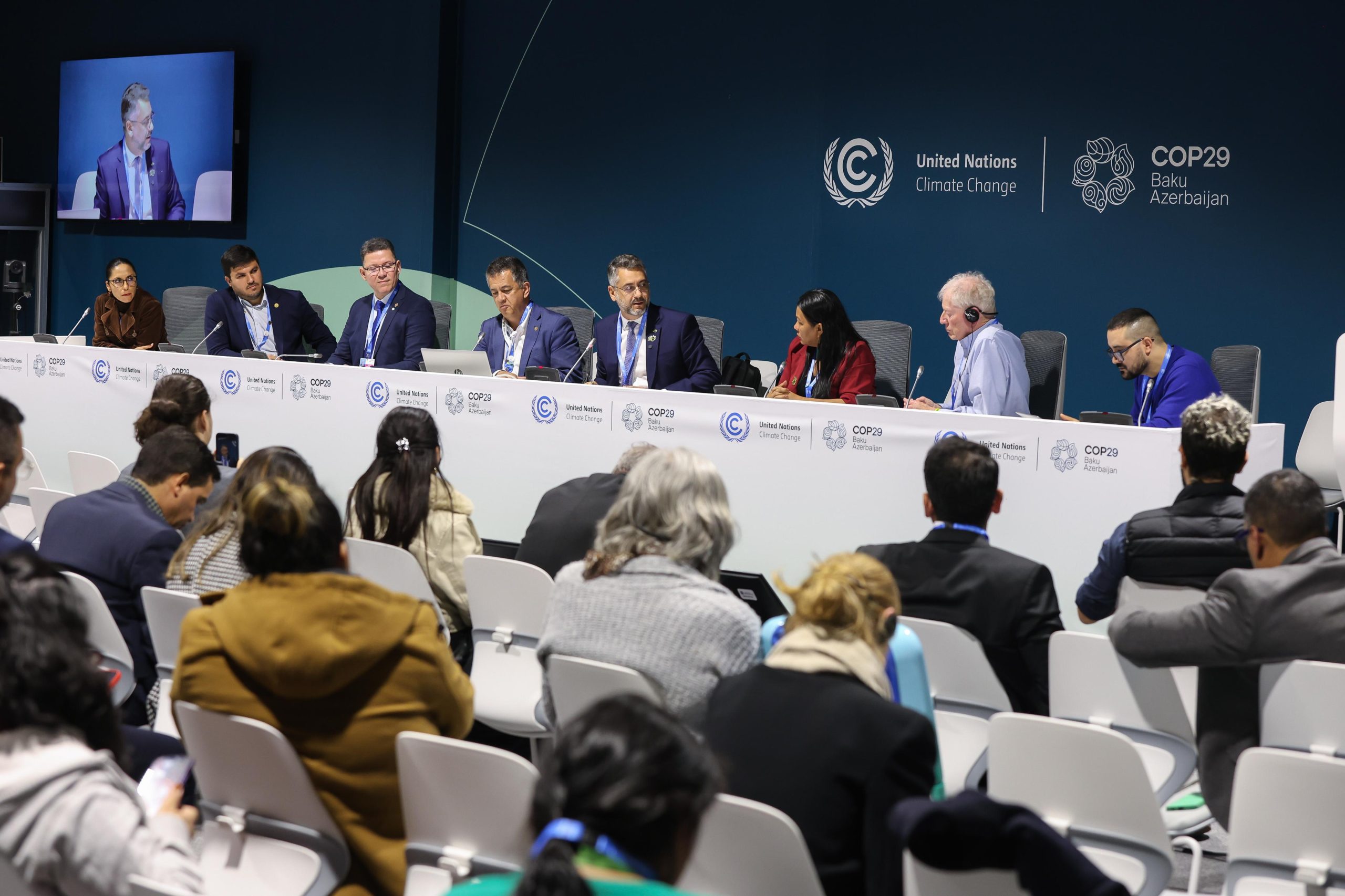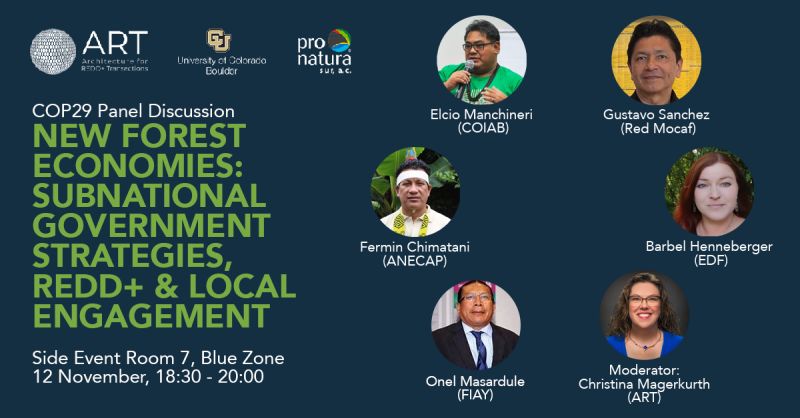Baku, Azerbaijan
Today, the Governors’ Climate and Forests Task Force (GCFTF), together with the Architecture for REDD+ Transactions (ART), Pronatura Sur (the GCFTF coordinator for Mexico), ABEMA, and the University of Colorado Boulder, hosted an official side event during the 29th Conference of the Parties (COP29) to the United Nations Framework Convention on Climate Change. The side event, titled: “New Forest Economies: Subnational Government Strategies, REDD+ & Local Engagement,” highlighted the important roles Governors, States, and Indigenous Peoples and Local Communities have in leading the fight against the climate crisis and building new forest economies that will truly benefit communities and reduce deforestation.
On the panel’s first section, Governors Clécio Luis (Amapá, Brazil) and Marcos Rocha (Rondônia, Brazil), as well as Secretary of Environment Leonardo das Neves Carvalho (Acre, Brazil) talked about the complex challenges that the jurisdictions have at the territorial level of ensuring long-term protection of the forests. These challenges include the devastating fire season in the Amazon, throughout the GCFTF network, and beyond.

In addition, Secretary of Indigenous Peoples of Acre, Brazil, Francisca Oliveira, spoke of the challenges and needs of Indigenous Peoples and communities, how forest dwellers visualize the opportunity to build a new forest economy, and immediate opportunities for collaboration that exist in the territories to build it.
Finally, Silvia Llamas Prado (GCFTF Director for Mexico), Sebastián Gradilla (Director of the Department of Sustainable Technologies, Tecnológico de Monterrey, México) and Dr. Michael Glantz.(Consortium for Capacity Building. INSTAAR / University of Colorado, Boulder) shared the vision of Civil Society and Academia as strategic allies for Subnational Governments and communities in the construction of their strategies, public policies, capacity building and management of the process to build this new forest economy. GCFTF Director for Brazil, Carlos Aragon, served as the panel moderator.
These discussions built on the recent release of the GCFTF Blueprint for a New Forest Economy launched last month.
The second half, coordinated by ART, continued with a discussion of the importance of jurisdictional standards for recognizing and incentivizing forest protection efforts through jurisdictional carbon market approaches, especially when coupled with co-benefits certifications designed by Indigenous and local community leaders. This portion of the panel was moderated by Christina Magerkurth of ART, and included remarks from Fermin Chimatani (ANECAP, Peru), Gustavo Sanchez (Red MOCAF, Mexico), Elcio Manchineri (COIAB), Basiru Isa (REPALEAC), Onel Masardule (ICVCM IPLC Forum), and Barbel Hennerberger (EDF).

Panelists on this second segment highlighted not only the urgency of recognizing the critical leadership role Indigenous Peoples and local communities have in preserving tropical forests, biodiversity, and key cultural knowledge and practices, but also the opportunity to achieve this recognition by valuing it through co-benefits certifications being pioneered by the ART Secretariat through its jurisdictional REDD+ standard – TREES. This certification could help attract and channel funding to where it is needed most – on the ground, with communities doing the hard work of protecting forests and climate from near-constant threat. Transitioning to a new forest economy that values these forests, their biodiversity, and their people is the only path forward for a sustainable future.
See here for a video recording of the full side event.
The Governors’ Climate and Forests Task Force is grateful to all our supporters and partners and looks forward to continued discussions at COP29 and beyond!

